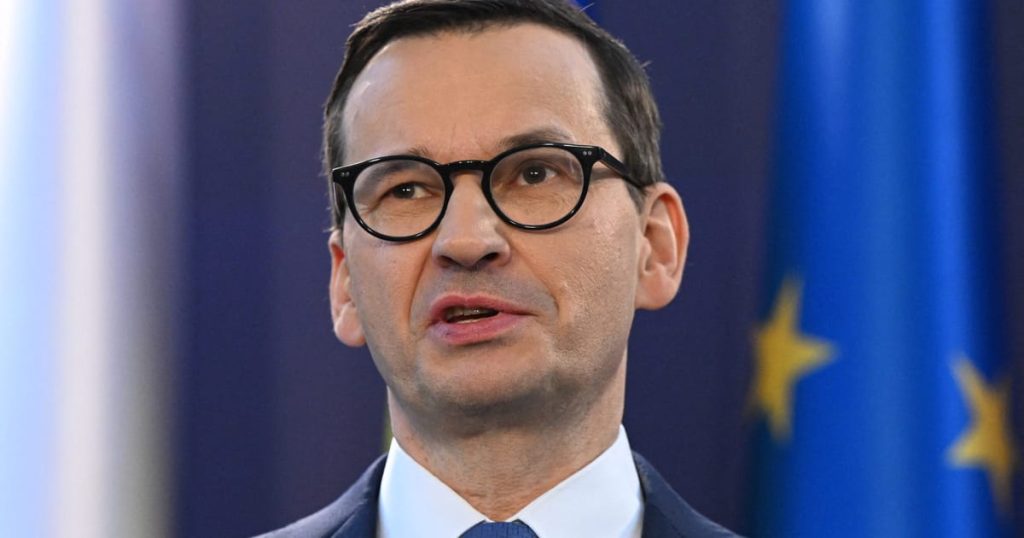The European Conservatives and Reformists (ECR) party, a significant player in the European political landscape, is navigating a complex internal dynamic as it grapples with ideological diversity and strategic positioning. The recent election of Polish Prime Minister Mateusz Morawiecki as ECR president underscores this delicate balancing act. While seemingly symbolic, Morawiecki’s appointment carries significant weight, coinciding with the commencement of Poland’s Council presidency, a period that places his political rival, Donald Tusk, in a prominent European role. This convergence of events highlights the ECR’s internal divisions and its strategic maneuvering within the broader European political arena.
The ECR’s composition is marked by a distinct duality. One faction comprises national parties perceived as moderately right-wing by centrist forces, parties deemed acceptable partners for negotiation and collaboration. Italy’s Brothers of Italy and the Czech Civic Democratic Party (ODS) exemplify this more moderate wing. In contrast, the other faction, spearheaded by Poland’s Law and Justice party, is often labeled as far-right and consequently excluded from mainstream political dialogues and leadership positions. This internal split presents a challenge for the ECR, requiring a delicate balancing act to maintain unity while accommodating diverse ideological viewpoints.
Morawiecki’s ascension to the ECR presidency is interpreted as a strategic maneuver to bolster Law and Justice’s standing within the European political landscape. It provides the party with a platform to challenge Tusk’s Civic Coalition, particularly in the lead-up to Poland’s presidential election. This move reflects the ECR’s broader aim of increasing its influence in Polish politics, leveraging Morawiecki’s position to amplify Law and Justice’s voice and potentially reshape the political landscape ahead of crucial elections. The timing of the appointment, coinciding with Poland’s Council presidency, further amplifies the political significance of this move.
The ECR’s emphasis on “diversity and flexibility,” as articulated by Fernand Kartheiser, a Luxembourgish member of the European Parliament and ECR board member, reflects the party’s attempt to reconcile its internal divisions. This principle suggests a willingness to accommodate differing policy positions among its member parties, prioritizing shared values over strict ideological conformity. However, this flexibility also presents challenges, potentially blurring the party’s overall political identity and making it difficult to present a unified front on key European issues.
The election of Morawiecki can be seen as an attempt by the ECR to bridge the gap between its two wings. By elevating a figure from the more controversial Law and Justice party, the ECR signals a willingness to embrace its more right-wing elements. However, this move also risks alienating the more moderate members and further exacerbating the existing divisions. The challenge for the ECR lies in finding a way to leverage the “diversity and flexibility” of its member parties without compromising its overall coherence and effectiveness as a political force.
Ultimately, Morawiecki’s presidency will be a test of the ECR’s ability to navigate its internal complexities and maintain a semblance of unity. The party’s success hinges on its capacity to balance the interests of its diverse membership, projecting a cohesive image while accommodating a spectrum of political viewpoints. The outcome of this internal struggle will significantly impact the ECR’s future trajectory and its role within the broader European political landscape. The appointment, coinciding with significant political events in Poland, sets the stage for a period of internal negotiation and strategic maneuvering within the ECR as it seeks to establish a clear identity and direction amidst a dynamic and evolving political context.














